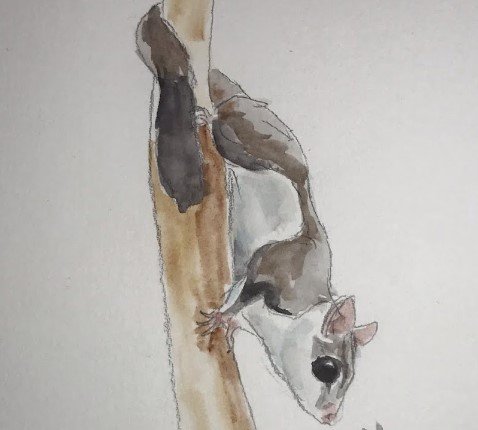What Does A Sugar Glider Sound Like
Sugar gliders are small marsupials known for their unique vocalizations. They communicate through a variety of sounds, each with its own meaning. From barks to chirps, these little creatures have quite a repertoire. So, what does a sugar glider sound like? Let’s dive into their vocal world and discover the various sounds they make!
Chirping and Purring:
One of the most common sounds you’ll hear from a sugar glider is a soft chirping or purring noise. These gentle, melodic sounds are usually signs of contentment and affection. Sugar gliders make these noises when they are happy, comfortable, or bonding with their human or glider companions. It’s their way of expressing their emotions and building social connections.

Barking and Hissing:
Sugar gliders can also make barking and hissing sounds, especially when they feel threatened or territorial. The barking sound is a high-pitched, sharp noise that they use to warn others or defend their territory. It can also be a sign of stress or agitation. Hissing, on the other hand, is a more aggressive sound, often accompanied by a defensive stance and bared teeth. These vocalizations serve as a warning to other animals to stay away.
Crabbing:
If you’ve ever heard a sugar glider make a crabbing sound, you might think you’re hearing a crab or a bird in the distance! Crabbing is a unique vocalization that sugar gliders make when they are scared, startled, or feel threatened. It sounds like a combination of hissing and chirping, with a harsh, screeching tone. It’s their way of trying to scare away potential predators and protect themselves.
Whistling and Clicking:
Sugar gliders also make whistling and clicking sounds, which are often associated with communication between individuals or when they’re looking for their companions. These sounds can vary in pitch and intensity, with each glider having its own unique vocal style. Whistles can be high or low-pitched, while clicks are produced by the gliders smacking their tongues against the roof of their mouths. It’s their way of finding each other or signaling their presence.
Squeaking and Crying:
In some instances, sugar gliders may make high-pitched squeaking or crying sounds, similar to a baby’s cry. These sounds usually indicate distress, fear, or pain. If you hear your sugar glider making these noises, it’s essential to investigate and ensure their safety and well-being. It could be a sign of an underlying health issue or something that needs immediate attention.
Frequently Asked Questions:
Q: Can sugar gliders mimic human speech or sounds?
A: While sugar gliders are capable of imitating some sounds and pitches, they cannot mimic human speech. They may learn to recognize certain environmental sounds or even associate certain words with activities, such as the sound of a treat bag or the word “no.” However, their vocal abilities are limited compared to birds or certain primates.
Q: How loud are sugar glider sounds?
A: Sugar gliders have relatively soft vocalizations. Their chirping and purring noises are typically gentle and soothing. However, when they feel threatened or agitated, their sounds can become louder and more intense. Generally, their sounds are not as loud as those of larger pets like dogs or cats.
Q: What should I do if my sugar glider is making distressing sounds?
A: If your sugar glider is making distressing sounds such as continuous crying or exhibiting unusual behavior, it’s essential to assess the situation and try to identify the cause of their distress. Ensure their habitat is comfortable, their diet is appropriate, and there are no signs of injury or illness. If their distress persists, it’s best to consult a veterinarian experienced in exotic pets.
Final Thoughts
Sugar gliders have a wide range of vocalizations, each serving a specific purpose in their communication repertoire. From chirps of contentment to barks of warning, these little creatures have a language all their own. Understanding their sounds can help you better connect with and care for your sugar glider, ensuring their overall well-being and happiness. So, the next time you hear your sugar glider make a sound, you’ll have a better idea of what they’re trying to tell you!







